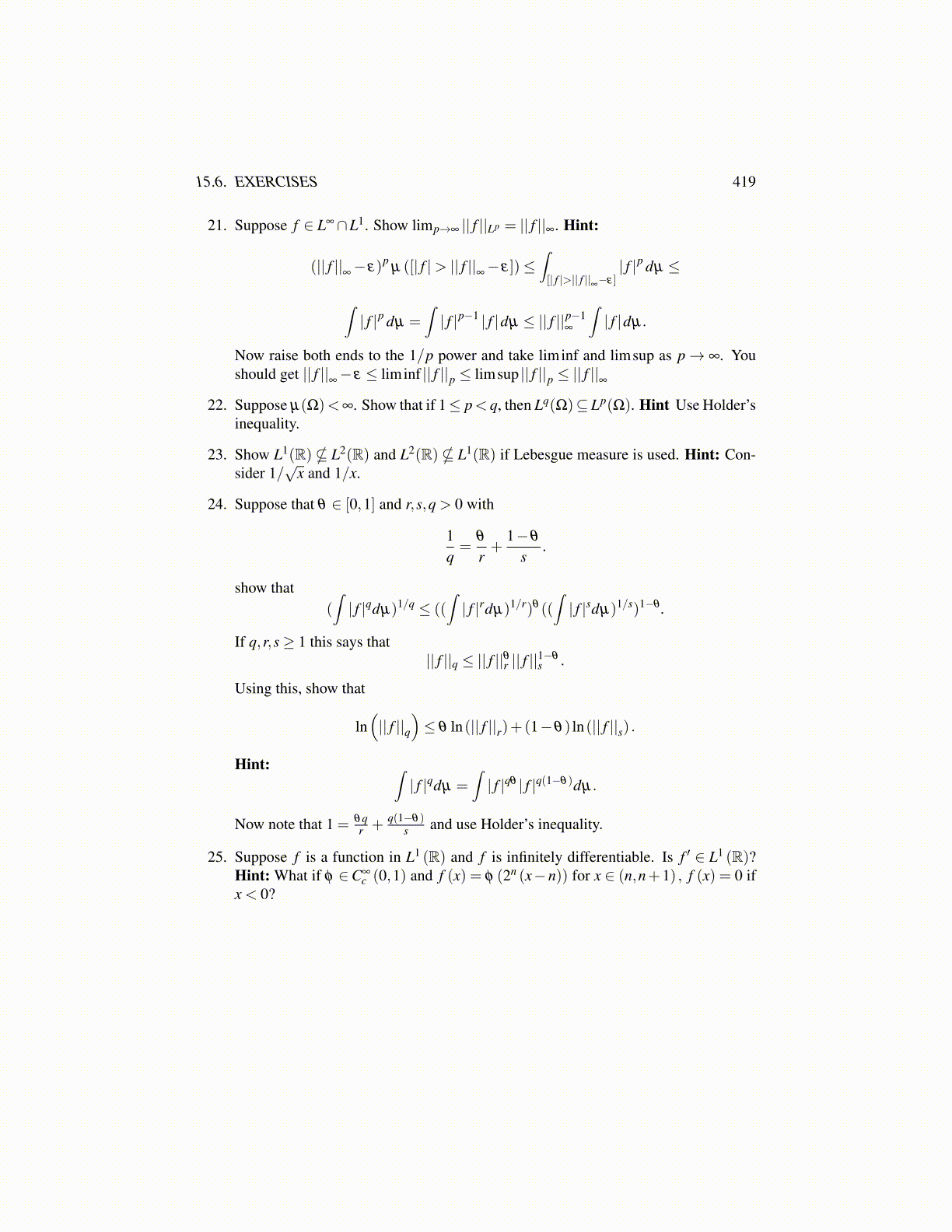
15.6. EXERCISES 419
21. Suppose f ∈ L∞∩L1. Show limp→∞ || f ||Lp = || f ||∞. Hint:
(|| f ||∞− ε)p
µ ([| f |> || f ||∞− ε])≤
∫[| f |>|| f ||∞−ε]
| f |p dµ ≤
∫| f |p dµ =
∫| f |p−1 | f |dµ ≤ || f ||p−1
∞
∫| f |dµ.
Now raise both ends to the 1/p power and take liminf and limsup as p→ ∞. Youshould get || f ||
∞− ε ≤ liminf || f ||p ≤ limsup || f ||p ≤ || f ||∞
22. Suppose µ(Ω)<∞. Show that if 1≤ p< q, then Lq(Ω)⊆ Lp(Ω). Hint Use Holder’sinequality.
23. Show L1(R)⊈ L2(R) and L2(R)⊈ L1(R) if Lebesgue measure is used. Hint: Con-sider 1/
√x and 1/x.
24. Suppose that θ ∈ [0,1] and r,s,q > 0 with
1q=
θ
r+
1−θ
s.
show that(∫| f |qdµ)1/q ≤ ((
∫| f |rdµ)1/r)θ ((
∫| f |sdµ)1/s)1−θ.
If q,r,s≥ 1 this says that|| f ||q ≤ || f ||θr || f ||1−θ
s .
Using this, show that
ln(|| f ||q
)≤ θ ln(|| f ||r)+(1−θ) ln(|| f ||s) .
Hint: ∫| f |qdµ =
∫| f |qθ | f |q(1−θ)dµ.
Now note that 1 = θqr + q(1−θ)
s and use Holder’s inequality.
25. Suppose f is a function in L1 (R) and f is infinitely differentiable. Is f ′ ∈ L1 (R)?Hint: What if φ ∈C∞
c (0,1) and f (x) = φ (2n (x−n)) for x ∈ (n,n+1) , f (x) = 0 ifx < 0?